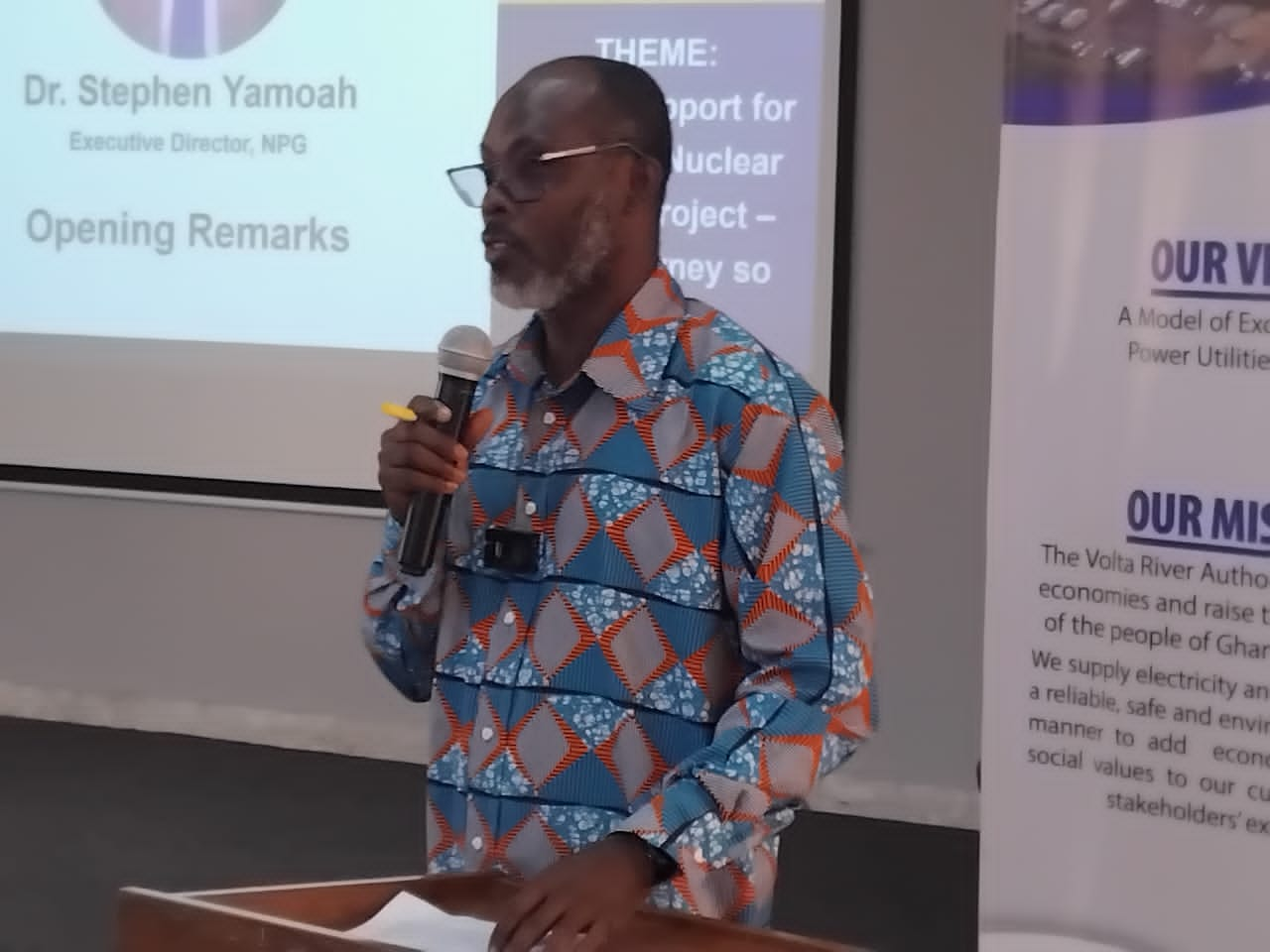Nuclear power is a viable option for Ghana’s energy mix -NPG Boss
Executive Director of Nuclear Power Ghana (NPG) Dr. Stephen Yamoah has highlighted the significance of nuclear power in meeting Ghana’s growing energy demands. He stressed on the importance of nuclear energy in providing reliable power to support the country’s increasing electricity needs.
Overview of Ghana’s energy mix
Ghana’s energy mix in 2022, as reported by the Energy Commission, consists of Thermal plants comprising 68.9%, Hydroelectric Power at 29.0%, and Renewable Energy, primarily solar, at 2.1%. As of 2022, Ghana has achieved an impressive electrification rate of 89% and sets a target to ensure nationwide electricity access by 2030. The data provided by the Energy Commission highlights the industrial sector as the largest consumer of electricity in Ghana, accounting for 42% of the total electricity consumption in 2022. Despite advancements in electricity supply, industries face challenges related to reliability and cost. Notably, electricity expenses account for a significant portion, ranging from 20% to 30%, of the total production costs for industrial operations.
Speaking at a workshop for media professionals by Nuclear Power Ghana in Accra, Dr. Yamoah pointed out the progress made under nuclear power project since 2007, including signing of MoUs with various organizations to support the project. He emphasized the training programme for Ghanaian technicians in welding skills to prepare them for the nuclear power construction project.
Ing. Kwaku Wiafe, speaking on behalf of Chief Executive of Volta River Authority (VRA), emphasized the continued importance of hydropower in Ghana’s energy mix for stable and renewable electricity. He highlighted the media’s role in creating awareness and generating support for Ghana’s nuclear power project to achieve the country’s net zero goal by 2060.
Head of the Legal Department at Bui Power Authority and Secretary to NPG Board Lawyer Franklin Addai stressed on the importance of providing the media with accurate information about the nuclear power project for effective public education. He emphasized the need for the media and the public to respect the legal framework governing the project and to act responsibly in sharing information.
Contributing to debate, Chief Executive Officer of Association of Ghana Industries (AGI) Seth Twum-Akwaboah, advocated for sustainable industrial growth to drive economic development in Ghana, pointing out the benefits of lowering production costs through initiatives like the nuclear power project. He called for collaboration among local companies to seize opportunities presented by the project and highlighted the importance of industry in Ghana’s electricity consumption.
Similarly, President of the Ghana Journalist Association Albert Kwabena Dwumfour has urged journalists to maintain professionalism in their reportage on the nuclear power project. He emphasized the need for journalists to ask tough questions, seek diverse viewpoints, and challenge assumptions to provide the public with a comprehensive understanding of the project’s implications for the environment, economy, safety, and national security.
Manager of the Energy Planning Center at Nuclear Power Institute Dr. Felix Ameyaw has acknowledged the importance of nuclear innovation in advancing energy security in Ghana. He emphasized the role of nuclear innovation in providing a reliable and sustainable source of power for the country’s future success.
Source: Jerry John Akornor
























































